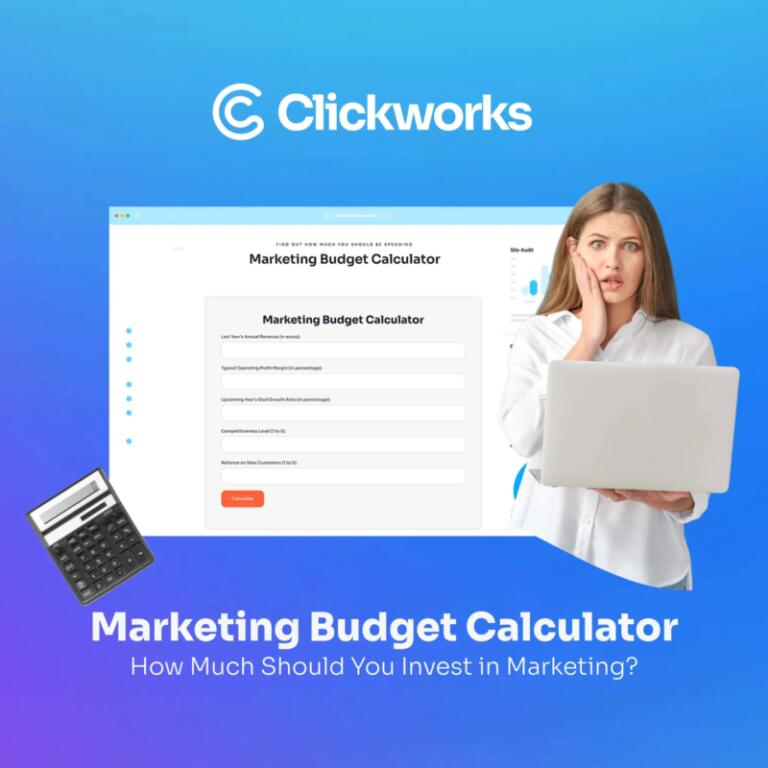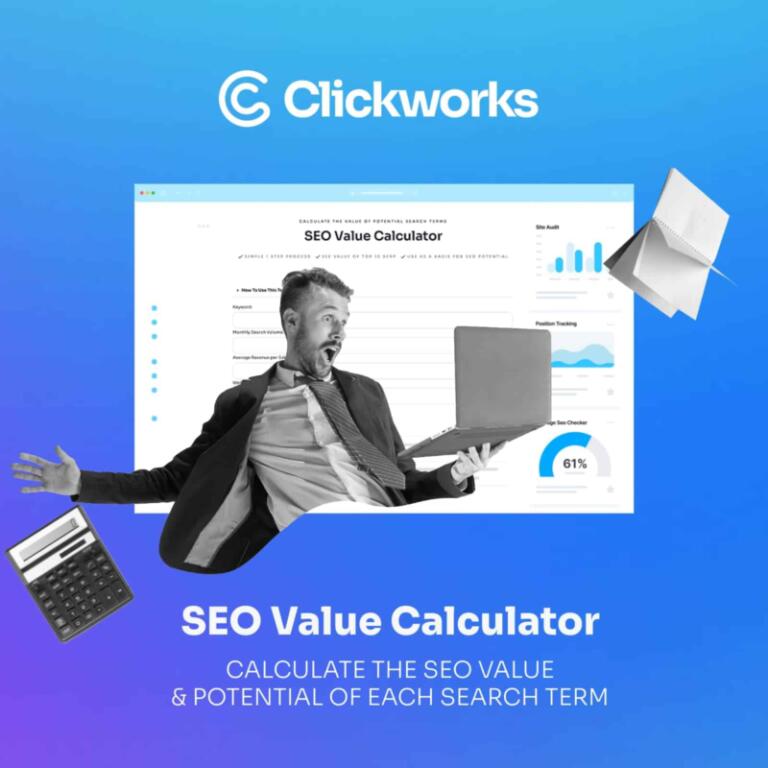Potential customers are 4x as likely to click on a Google ad than one from another network. Plus, 80% of all global businesses trust Google ads to run their PPC campaigns.
In short, Google Ad campaigns shouldn’t be performed in your spare time. The right keyword research, optimization, digital marketing, keyword ideas, metrics, and SEO must be in place for the best results. That holds true for a traditional business website or an eCommerce store. Either one requires the work of an experienced marketer, working full-time on your Google Ads account.
If you’ve tried running Google ads campaigns in the past but couldn’t keep your metrics and match types consistent, the culprit is likely your keyword ideas – or lack thereof. Google Ads keywords play a massive role in the success of your campaigns, so you need to know how to use them properly.
This article will show you how to perform emergency surgery on your Google Ad campaign (namely your keyword research and keyword strategy) and how to fix it. Let’s get started.
What Are the Main Concepts of a Google Ad Campaign?
When researching keywords for your ad groups, there are several concepts you’ll need to understand:
Why Google Ads keywords matter for your SEO
We all know that the right keywords are the lifeblood of your website’s SEO for showing up in organic search results. You might not know that keywords (or search queries) are also pivotal to a successful pay-per-click (PPC) campaign and Google ads campaign.
Google will use these keywords to match your advertisements with search terms potential customers are using to find what you’re selling.
It’s Google’s goal (and the goal of any search engine) to match search queries (or keywords) with the highest quality and most relevant content online. That’s true for both organic and paid searches.
Furthermore, your ad could reach other potential customers or sites with similar keywords or keyword match types (more about that below). In that way, your new keywords can connect you with new audiences you never considered before.
The right Google Ads keywords for the right Google Ads campaigns
It’s essential to realize that there is a difference between the right keywords you use for SEO (which tend to be lower intent) and the ones you use for PPC (higher intent).
It’s also about more than compiling a massive list of keywords. For PPC ads, how you group and organize your new keywords are equally as important.
For example, let’s say that you wind up with an 80,000-strong list of keywords to use in your Google ads campaign. There’s no way that you can write targeted ads or create a landing page for every single new keyword or keyword phrase. At the same time, you can’t create a handful of Google Ads campaigns that represent all 80,000 queries.
The answer is to use keyword grouping to break up your search terms into manageable ad groups. That way, you’ll be able to create targeted ads for small groups of specific keywords. That will make it far easier to manage thousands of keywords without sacrificing your optimization quality.
If you need a keyword research tool to get keyword ideas, you can use our FREE Google Keyword Tool or paid options like Ahrefs or SEMrush. They will help you discover new keywords to use for your Google Ads campaign.
The intent behind the Google Ads keywords
It’s not enough to simply compile a list of relevant keywords during your search queries. It would be best if you also determined the searcher’s intent behind their search queries.
Digital marketers label keywords as having high or low intent. When a searcher is eager to buy something or perform some type of action, the right keyword or keyword phrase would have a higher intent.
If all a searcher is after is to learn more information about something, the relevant keywords have lower intent. As stated before, low intent keywords are more effective for SEO campaigns rather than eCommerce campaigns where you aim to educate and provide information through content marketing tactics.
Search queries are broken down into three types of intent: informational search queries, navigational search queries, and transactional search queries.
As a business owner using PPC ads, you’ll want to use transactional keywords exclusively.
Why’s that?
It’s because these keywords have the highest intent – or the strongest chance to convince potential customers to make a purchase. Common transactional keywords include high intent phrases such as “buy now” or naming specific products like “Playstation games.”
These keywords are precise in their intent, and the users are looking to buy something. That’s why these types of keywords are great for improving your conversion rates.
Negative keywords
Selecting the right keywords with high intent will put you on the path to an effective Google Ads campaign on Google search. But, there is one more step: adding negative keywords.
A negative keyword prevents your ad from being triggered by a specific word or phrase.
Here is an example of a search ad that appears for one of our clients:
But, we use negative keywords for searches that would be irrelevant or not qualified for our services. Examples of these include “free,” “DIY,” or “cheap.”
None of these words would serve our client, so we added them to our negative keywords list. In other words, keywords are the queries you WANT to show up for, and negative keywords are the queries you DON’T WANT to show up for on your Google Ads.
See below how the company’s ads are blocked when “free” is used in the search query.

Choosing Your Keyword Match Types
It’s essential to remember that Google Ads are delivered through a bidding process. Therefore, you need to specify how aggressive or restrictive you want to match advertisements to keyword searches.
Here are the keyword match types:
- Broad Match: Your Google Ad could appear when a search includes any words in your keyword phrase, in any order.
- Phrase Match: This one allows you to lock in a phrase using your keywords in the exact order you entered them.
- Exact Match: As the most strict of all match types, this one will only deliver your Google ad when there is an exact match of keywords.
All keyword match types have their advantages and disadvantages, and some may work better with certain products than others. Check out this graphic from Google.
The best way to find out which keywords convert best for your campaign is to start with phrase match and exact match keywords. These match types will give you the cleanest and most relevant traffic (and higher conversion rates).
Once you start getting the hang of what is working for your business, cut the keyword match types that aren’t getting more eyes on your products. Generally, it’s a smart move not to go too broad or too tight.
Seeking a Lower CPC Is Often the Wrong Choice
The next step in building your Google Ads campaign is calculating your cost-per-click (CPC). That is how much money will be charged to you every time a customer clicks on your Google ad.
One thing we always notice new clients trying to do is to shoot for the lowest CPC. It seems like common sense, but the truth is a lower cost per click doesn’t always mean more money in your pocket.
CPCs also vary depending on the industry. We see rates for different companies ranging from $50 to $200 – and we don’t shy away from the more expensive ones.
A higher cost-per-click is actually an indicator that the keywords are more profitable.
For example, we work with a lot of lawyers. As you all know, there are a lot of law firms, and hundreds of them bid on Google Ads every day.
Why are legal keywords so high? Because the search intent discussed above is so high that we want someone searching specifically for exact keyword match types. For example, “personal injury lawyer”.

If someone is searching for that specific keyword phrase, they’re most likely looking for a personal injury lawyer.
On the other hand, if you use “personal injury lawyer” as a keyword but use a broad match, then the search could be a mix of anything. That is a case where using very specific keywords and exact match keywords will benefit the client.

Out of these five search queries, only one of them is the search query we want our ads coming up for on Google. The rest are too broad and a waste of our money.
How To Structure Your Keywords
One of the last pieces of advice we’ll offer you in this article is about how to structure your keywords. When we start working with a new client, we advise them to begin with phrase match and exact match.
We want to make sure they’re getting clicks from potential customers who are actually interested in what they’re selling.
While this limits the total amount of people clicking on your ads, it’s more likely to result in higher conversion rates.
After a month’s worth of data and having our search teams clean, the HOTH PPC team will sometimes open up our keywords to a broad match. That will allow us to find other search queries that potential customers are actively looking for and give us ideas for new Google Ads keywords.
Bear in mind that a broad match delivers a bigger pool of potential customers, meaning you need to be on top of your negative keywords to avoid wasting money on irrelevant ads.
How Many Keywords is Good for Google Ads?
One mistake many make is putting too many keywords in their PPC and Google ad groups. The old adage about “less is more” fits well in this situation. It’s recommended that 20 to 25 keywords per group is best, with a maximum of 30. If you don’t reach 30 it’s fine. If you’ve got less than that in your list of keywords, it’s likely because you have done your keyword research efficiently.
Fact is one of the most common mistakes in PPC is using too many keywords in your Google ads campaign. Many of our clients at The HOTH have ad groups of 4 or 5 keywords and their results have been excellent. More important is that your relevant keywords are closely related and your ad copy as specific as possible.
How to Choose the Right Google Ads Keywords for Your Campaigns
Choose keywords with a high search volume
A high monthly search volume (between 100 and 1000 searches a month) is vital to reach the most searchers and potential customers. Indeed, if your keywords have low search volume, Google Ads will flag them.
Choose topic-specific keywords
Specific, long-tail keywords and keyword phrases improve intent and increase your chances of reaching your potential customers. They improve your SEO and metrics and increase your conversion rates. Here’s how to choose them:
- Write a 1 or 2-sentence description of your topic in the form of a question.
- Choose the most important 4 words from your question(s). These will be your key concepts.
- For each key concept word, list several similar or related words. These will be your topic keywords.
Put the same keywords in your landing pages
Most, or all, of your relevant keywords in your Google Ads should also be present on the landing pages linked to your Google ads. To do that, your landing page content should use your keywords liberally. That means writing content (or having it written) following your keyword recommendations.
Follow best practices
Single word or branded keywords are a no-no, as well as overly generic keywords like “free information”. Your list of keywords needs to be specific and relevant keywords geared toward your potential customers. According to Google, best practices include:
- Thinking like a customer and what they would search for.
- Avoid using terms that are too general. “Wedding”, for example, is too general. “Wedding flowers”, “wedding cakes”, “wedding dresses”, etc, would be better.
- Have a website and use your keywords there.
- Include the name(s) of well-known brands that you’re selling.
- Don’t start your keyword research with an adjective. For example, “wedding dress” is better than “best wedding dress” or “prettiest wedding dress”
- Use multiple keywords and keyword phrases.
- Be cautious using location. If your customers are in a specific locale, yes. If you’ll be using location targeting, no.
Here Are Several More Tips to Find the Best Google Ads Keywords
- Think like one of your potential customers. What search terms would they search for?
- List different keyword variations, including colloquial terms, synonyms, alternative spellings, and plural and singular terms.
- Choose language and location setting carefully, including territories, countries, regions, cities, etc.
- Avoid keyword terms that are too general.
- Know what, specifically, you’re selling. (You’d be surprised how many can’t say exactly what they sell.)
- Don’t take keyword research lightly.
Where to Find Google Ads Keywords
Below are several keyword research tools you can use to find the top Google Ads keywords for your campaigns and ad groups.
Existing Search Queries
Existing search queries are a treasure trove of excellent keywords for your Google Ads campaigns. The acquisition report in Google Analytics can show you which terms are best and are being used by potential customers.
Your Website and Landing pages
Use Google Ads Keyword Planner tool to get recommendations on keywords used in your own content, landing pages, and website.
Keywords Used by your Competition
If your competitors are using the right keywords and having success, you should be using them also. iSpionage will help you see which keyword ideas are being used, or bid on, by your competitors.
Current Events
Depending on your products and services, current events and pop culture might have some relevant keyword gold when attracting potential customers.
Final Thoughts on Google Ads Keywords
We hope this post has helped you understand what happens behind the scenes with PPC advertising. Businesses wanting to launch their own Google Ad campaigns need to do keyword research, determine intent, figure out phrase match, choose relevant keywords, include negative keywords, and be prepared to make many adjustments.
One thing we want to stress is how difficult it can be to manage Google ads campaigns and PPC campaigns on your own. We’ve worked with many clients who lost hundreds or thousands of dollars on new Google ads because their keyword research was lacking or their keywords were structured too broadly.
We help companies like yours configure paid advertising (PPC) campaigns to get a high ROI. Part of our PPC service is also working with clients to optimize landing pages, so potential customers are more likely to convert.
If you need help with Google Ads, book a call today with one of our PPC experts here at The HOTH.



